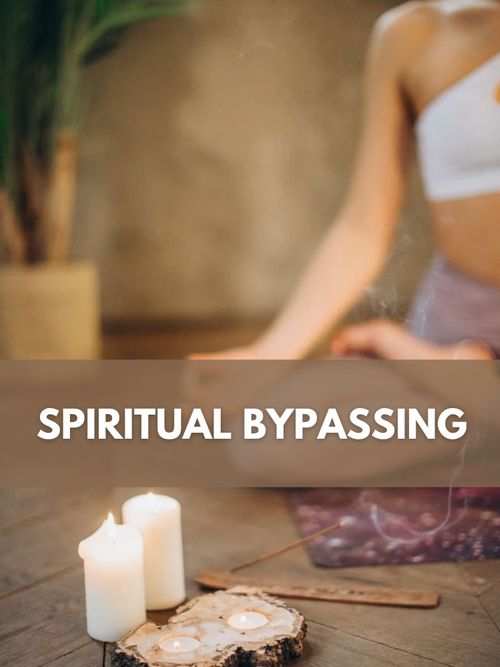Are spiritual and wellness practices helping you avoid your deeper issues?
Oct 19, 2021 · 2 mins read
0
Share

John Welwood, author and psychotherapist, coined the term “spiritual bypassing” in 1984, bringing new light to the potentially unhealthy ways spiritual and wellness practices could be used to unconsciously avoid having to grow and face one's pain.
Save
Share
He defined spiritual bypassing as using “spiritual ideas and practices to sidestep personal, emotional ‘unfinished business,’ to shore up a shaky sense of self, or to belittle basic needs, feelings, and developmental tasks" (essentially, as a psychological crutch).
Save
Share
Ingrid Clayton, psychologist, expands on this by explaining that spiritual bypassing uses a wellness or spiritual practice to “check out” instead of “checking in” with oneself. We repress our present sensations and feelings, as with any other defence mechanism.
Save
Share
For example: Someone uses a meditation practice to "control" their anger, an emotion they have never let themselves feel and process, since they prematurely judged that such an emotion is unspiritual. This holds their emotional development back and keeps them stuck.
Save
Share
The ultimate purpose of spiritual (and often other wellness) practices is to drop deeper into oneself and one’s experience in order to experience the truth of a situation directly and honestly. This involves being deeply anchored in the present moment, not escaping it.
Save
Share
Spiritual and wellness practices are often done in order to feel better, and if not done with awareness, they can become addictive in a way that doesn’t help heal the emotional wound underneath and may even exacerbate the symptoms as the problem festers.
Save
Share
Some signs of spiritual bypassing are: detaching from the present, being self-righteous about enlightenment, overemphasising the positive over the negative, pretending everything is okay when it doesn’t feel that way, excessive false compassion.
Save
Share
Spiritual and wellness practices can be used to ground us in our sense of humanity, instead of trying to escape it. Escaping leads to an inner life which is so disjointed from the outer life that it eventually and inevitably catches up, often in a painful way.
Save
Share
Spiritual bypassers must feel, acknowledge, and accept their experiences, pain and bodily sensations. A first step to this healing process is cultivating true compassion for oneself and others, a practice which is consistently lacking in many bypassers’ lives.
Save
Share
Bottom line: Like everything, spiritual and wellness practices can be used for good and bad. If we use them in a way that feels excessively forced and/or as a way to avoid and run away from certain feelings or experiences, then we may be spiritually bypassing.
Save
Share
0